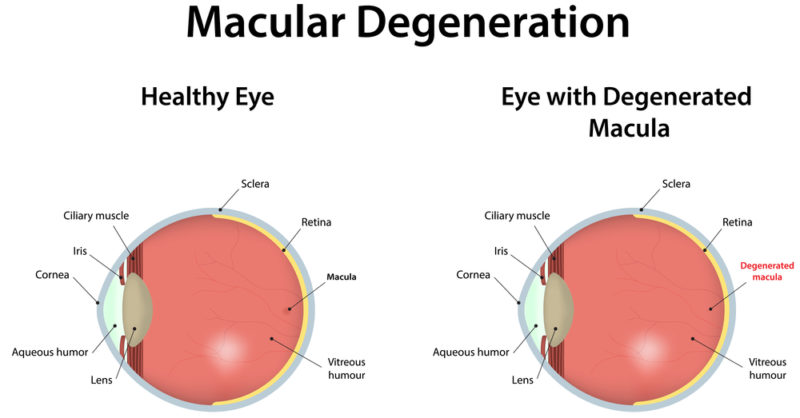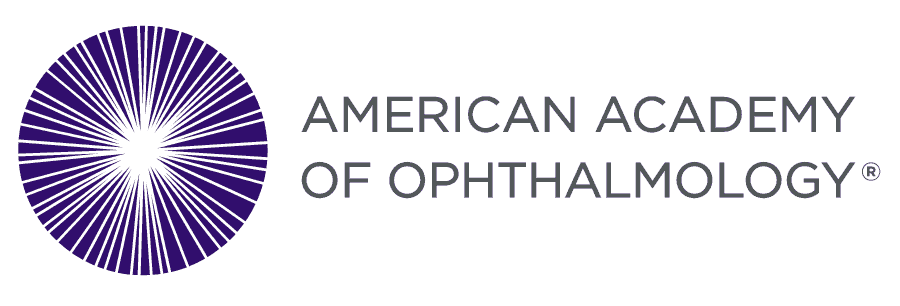Macular degeneration is a disease associated with aging that can gradually reduce central vision and comes in two forms – it may be referred to as AMD or ARMD (age-related macular degeneration). The dry (non-neovascular form of the disease typically has few symptoms in its early phase, but can become progressively symptomatic over an extended period of time. The wet (neovascular) stage, is more severe and can cause rapid severe vision loss if left untreated. Early detection when the disease is still in the dry stages, can be helpful to prevent severe vision loss.
Dry macular degeneration affects between 85 to 90 percent of ARMD patients, with wet macular degeneration affecting just 10 percent of ARMD cases. People over the age of 65 and Caucasian women are at a higher risk for macular degeneration. Smokers have a higher rate of disease than non-smokers.
People have a greater chance of developing macular degeneration themselves when a member has the disease. Inflammation may also play a role in the development of macular degeneration.
Diagnosis of ARMD
While a diagnosis of macular degeneration typically can be made during a routine dilated eye examination, advanced testing including multi-modal imaging can be helpful in determining stages, types, and activity of the disease. Imaging techniques may include Optical Coherence Tomography (OCT), Fluorescein Angiography (FA) and Indocyanine Green Angiography (ICG), A newer modality, OCT Angiography (OCTA) has recently become available, however, the clinical usefulness is currently under investigation.
ARMD treatment options
Although there is currently no cure for ARMD, there are some treatment options. Scientific studies have shown that antioxidant vitamins and zinc may reduce the impact of dry macular degeneration in some cases by slowing its progression toward more advance stages.
Another study known as the Age-Related Eye Disease Study 2 showed that people at high risk for developing wet or late stage macular degeneration, lowered the risk of macular degeneration progressing to advanced stages by at least 25 percent by taking a dietary supplement of vitamins C, E, lutein and zeaxanthin, and zinc. Read more about the results of the AREDS2 study.
Other treatment options for wet age-related macular degeneration include: Anti-VEGF medication injection treatments, laser treatment, and photodynamic therapy.
As with any vision-threatening disease or condition it is best to seek treatment right way. If you believe you are suffering from macular degeneration or have any of the symptoms of age-related macular degeneration, make an appointment with one of our board-certified ophthalmologists / Retinal specialists, that specialize in treating macular degeneration.







